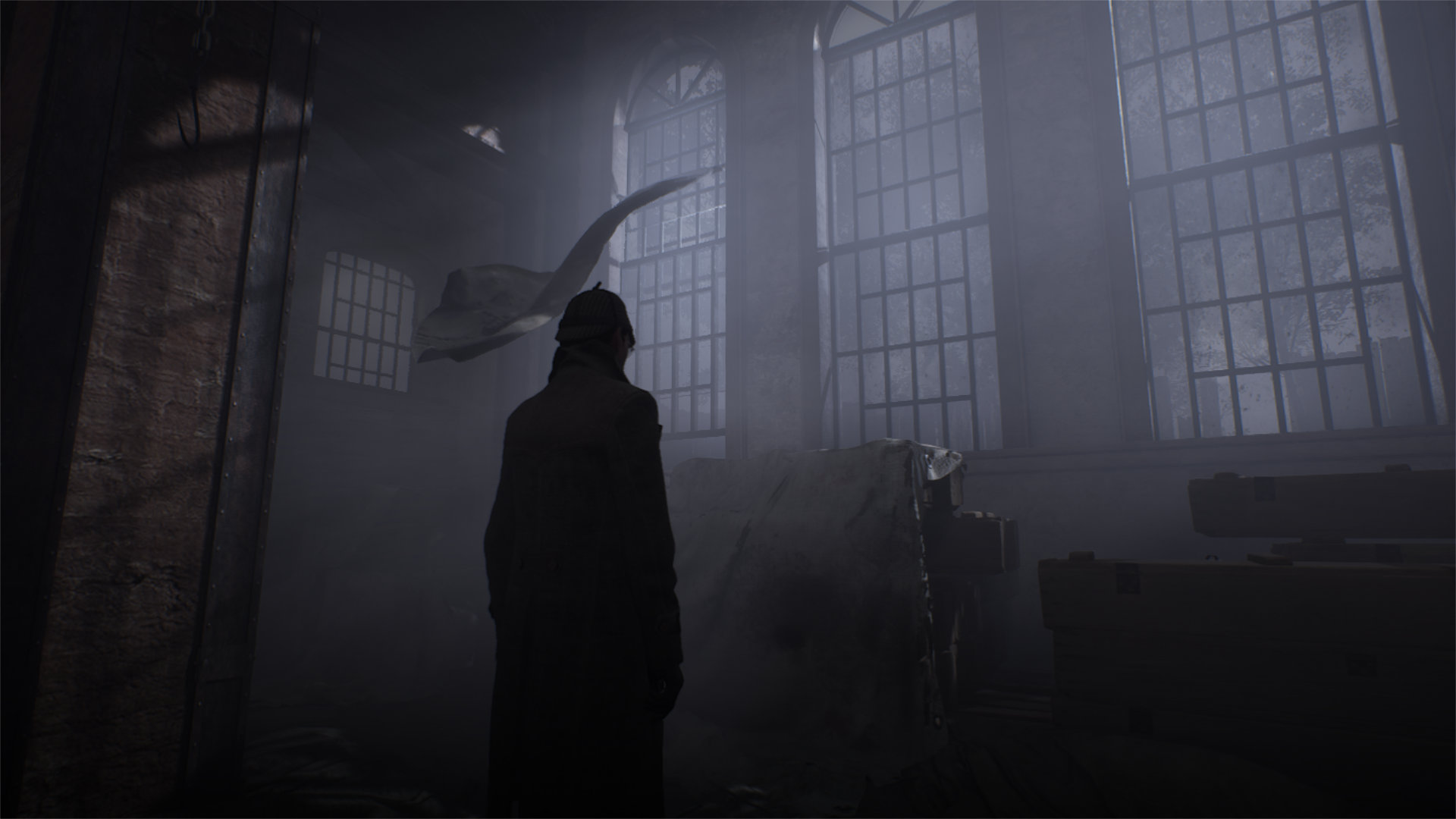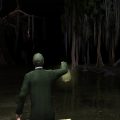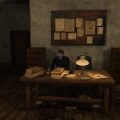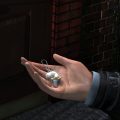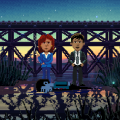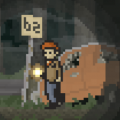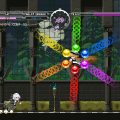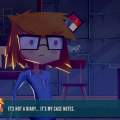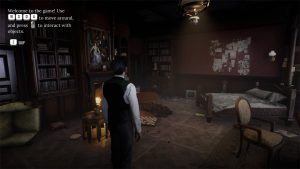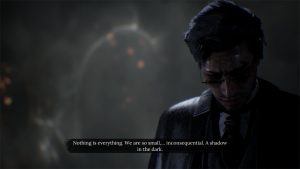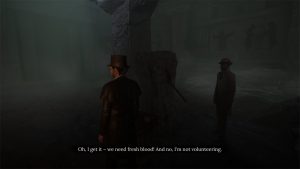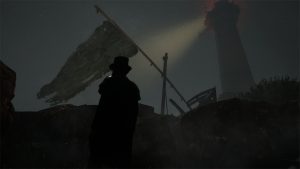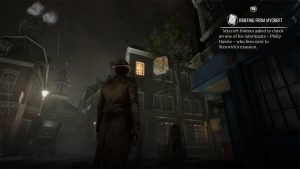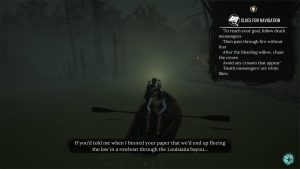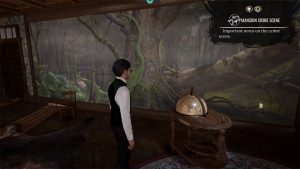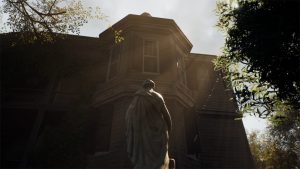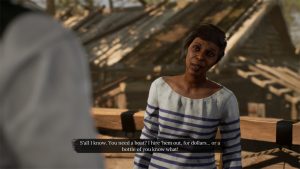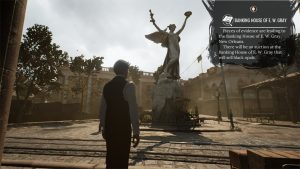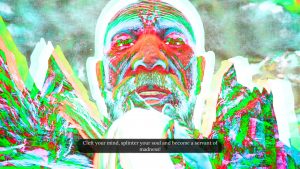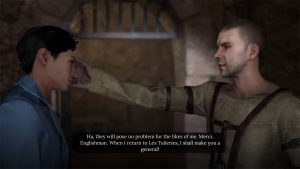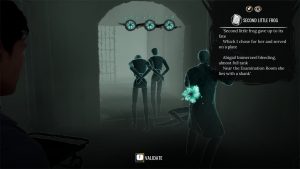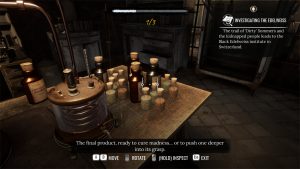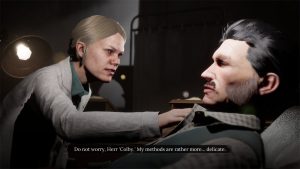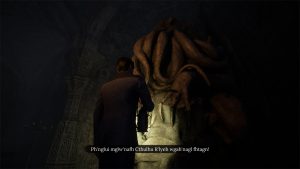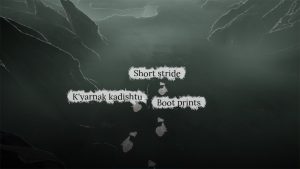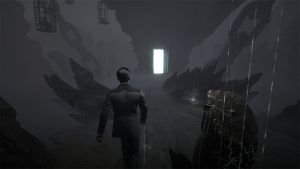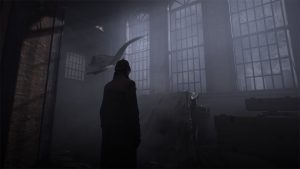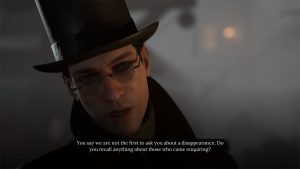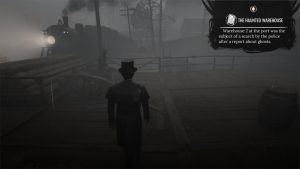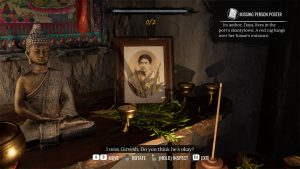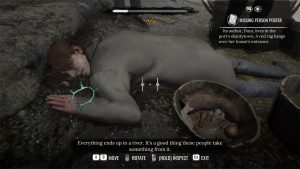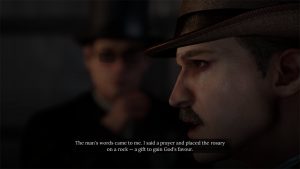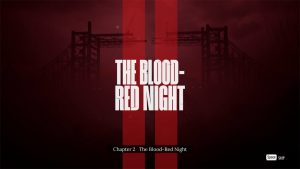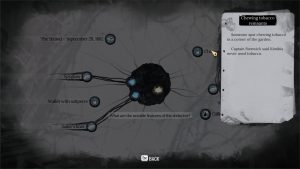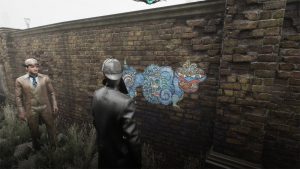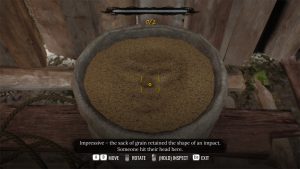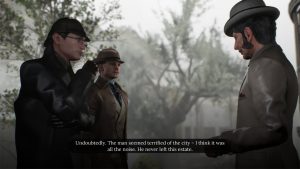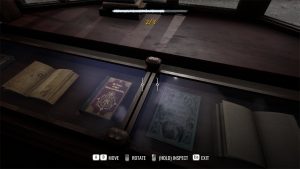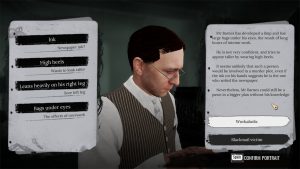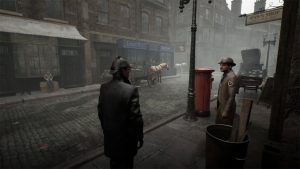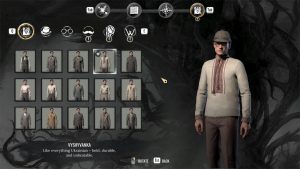- Sherlock Holmes: The Mystery of the Mummy
- Sherlock Holmes: Secret of the Silver Earring
- Sherlock Holmes: The Awakened (2006)
- Sherlock Holmes: Nemesis
- Frogwares’ Sherlock Holmes Casual Games
- Sherlock Holmes Versus Jack the Ripper
- Testament of Sherlock Holmes, The
- Sherlock Holmes: Crimes & Punishments
- Sherlock Holmes: The Devil’s Daughter
- Sherlock Holmes: Chapter One
- Sherlock Holmes: The Awakened (2023)
Content Warning: This article’s introduction briefly discusses a real world war, with tweets linked chronicling some events. None of the tweets linked share graphic content.
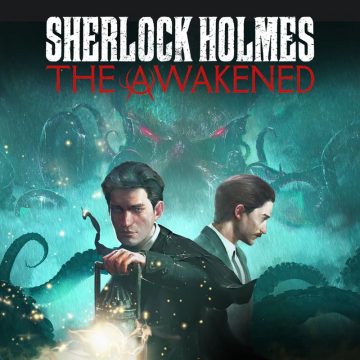
On August 4th, 2022, Frogwares set up a Kickstarter to help fund and finish a new Sherlock Holmes game, a remake of The Awakened set in the Chapter One continuity. It was a natural development after the mess they had with Nacon over the rights of The Sinking City, causing the studio to pursue independent development more seriously. They met all their funding on the first day, and quickly had the stretch goals smashed at €130,000 above their intended goal when the campaign ended.
They had started planning the development of this game in early February…a few days before the start of the Russian invasion of Ukraine. Frogwares is a joint Ukrainian and Irish studio, but mostly Ukrainian, the Dublin branches being small extensions. They were planning this game while their country was being bombed, their offices constantly losing power, having to deal with the fear of war on their doorstep, and some of their members actually fighting out there (and some dying). People Make Games actually interviewed some of Frogwares staff, giving us a first hand look at what they were going through. Some of the staff fled the country, but many others remained. Despite all this, they finished the game as promised, with a slight delay, and the end result is one of the top five releases for the long running franchise.
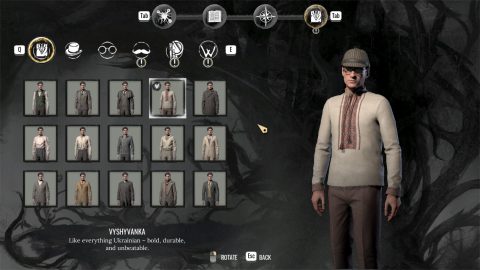
They have been using their social media to share messages of resistance, toss out political jabs, chronicle the frankly insane sights that have trickled down to them, and more importantly, declare that Ukraine still stands. As they state directly in the game’s credits and opening screens, this game was made as an act of resistance, to show that those who would take their lives and country could not stop them from living as they always had, and doing what they have always done.
This version of The Awakened takes place a short few years after Chapter One. Sherlock and Watson are getting used to each other as roommates, but their careers as a detective and writer respectfully have yet to materialize. Watson manages to find Sherlock a case in the form of a missing servant, and the two end up on the trail of a human trafficking ring slash cult. That said, there is a new wrinkle in the events this time, the duo not only inexperienced, but also still dealing with their own serious traumas. Watson is still carrying emotional scars from the war in Afghanistan, while Sherlock is dealing with a dark revelation from Chapter One that makes him particularly vulnerable to the tactics of the eldrich cult this time around. The two will have to lift each other upon this investigation as things starts to spiral out of control, and the two are tested like never before.
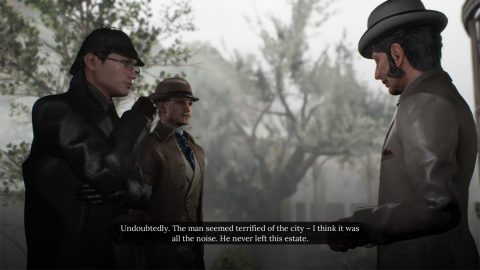
Surprisingly, this game follows the plot beats of the original fairly close. The structure of the story remains unchanged (London investigations, Swiss asylum, The Big Easy, return trip, lighthouse), and the major players are all accounted for. A few have gone through gender swaps, like Gygax at the asylum and Champagne in Louisiana, but their roles remain mostly the same, or have some slight expansion. Gygax, in particular, gets fleshed out with additional dialog scenes with Watson, as does Sheriff Grubb. Outside a few more minor characters missing (rip guy at the bar who wiped his butt with his hook hand) and a few segments removed (such as the Louisiana chase scene and lemon juice puzzle) or replaced by new stuff (Watson having a starring role in the second half of the asylum now), the game is overall a proper remake. Changes made serve the new narrative focus, where the game really shines.
Beyond some slight changes to tone and overall framing to make the game feel more diverse and more aware of the injustices baked into the setting, Holmes and Watson are a much more lively pair that are affected by the events of the case much more. It becomes central to both of their arcs, as they form their legendary bond and are tested in different ways. Watson ends up having to step up more often, and no longer feels like the clumsy comedic relief he’s been in most of Frogwares’ releases. We even get scenes of him finding resolve in himself and making quips over the danger he finds himself in, and he’ll need that new resolve because Sherlock’s arc is in the exact opposite trajectory.
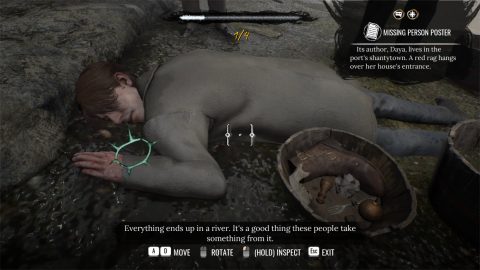
If you felt the original game didn’t have enough mind screw moments to match up with the material being played with, you will be pleased here. This version of Sherlock Holmes is now dealing with the very real possibility he may not be as sane or emotionally stable as he thought he was, so he ends up being affected by the cult in more dramatic ways, though it’s always kept vague if what is happening can be explained logically or really is magical. It definitely leans more supernatural now, especially some final lines from the main antagonist, but it never confirms outright and leaves wiggle room.
We now have really visually impressive moments in eldrich locations that require Sherlock to do illogical things to proceed, and the great juxtaposition of how it’s just a short walk for Watson. Even these moments leave ambiguity as if they are real or Sherlock reacting to some sort of drug in his system, like having painting in one area Sherlock believes he may have seen and helped triggered a trip from the drugs in the air (if you examine it). It’s a solid balance that also evens out the duo’s partnership, Watson picking up the slack when Sherlock can’t think straight, losing himself to the cult’s influence, made worse by his obsession with truth. Watson even gets some good lines on Sherlock, personal highlight being dunking on that weird one rolled up sleeve thing he did in Chapter One. It’s a satisfying dynamic flip that works well to express the growth of their bond.
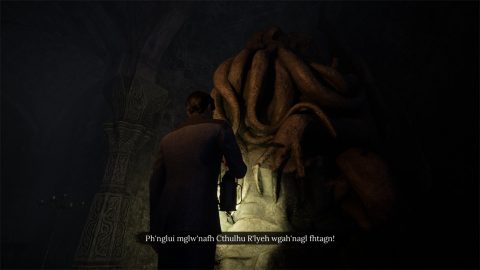
All of this also increases the stakes into something far more personal. This is a much heavier emotional journey for the pair, really highlighted by how the final encounter goes down this time and some fantastic lines in that sequence (“One must imagine Icarus happy!”). This is easily some of the best writing any of Frogwares’ past games have ever had, and it carries over to side cases. While the base game is fairly bare for these, six are added with some DLC, including a great one in Louisiana dealing with a man who thinks he’s cursed by a voodoo god that goes in a much more grounded direction that mirror’s Watson’s arc. We even get more hints for future plans, making one wonder if the next game will be a remake of Nemesis, or something else, since remaking Testament and/or Versus Jack the Ripper may not work in this continuity.
The mechanics and puzzles have also been greatly changed. While some solutions and bits remain mostly as they were, a lot have been tweaked or completely transformed in order to match up with the new gameplay styles of Crimes & Punishments and Chapter One. This is a full on third person adventure with larger maps, like little open world hubs, having more personality and details, while keeping a lot of the old familiar. The gameplay is also now less point and click and more a streamlined, controller friendly investigation game.
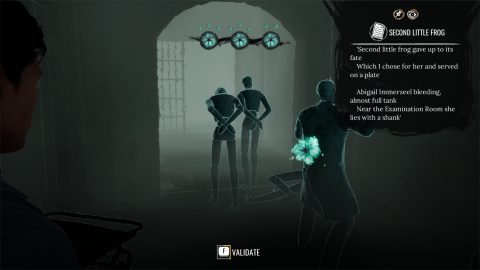
Stuff like concentration carry over for re-creating crime scene events (complete with Chapter One‘s pin system), making the busy work bits of investigation quicker. There’s also less focus on individual objects in the game world, so puzzles instead rely more on gathering information and using clues in the mind palace to answer questions (rather than solve a case). This streamlines each of the eight chapters, so there’s less old school guess work as what to do next and you can get right to the point. This also changes the general pace of chapters, like the asylum now being one chapter, and the second half shortened and condensed to allow for better narrative pacing and a new scenario for Watson. This gives Louisiana more time to breathe and stand out.
The end result is a pretty lean adventure that still manages to be around a solid eight to twelve hours, with replay pushed via the scoring system. For every clue you find and bit of progress you make, you can earn score that unlocks more cosmetics to play with, plus models and concept art to view. It’s a pretty neat little bonus, and you get bonus score for doing a task with minimal to no guess work, pushing you to really think like a detective. You can brute force mind palace questions if you want, but seeing that extra bit of number for doing it right just feels way more rewarding.
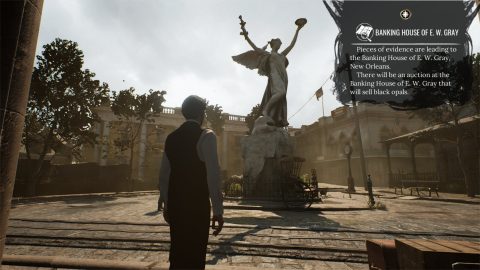
While the lack of a first person perspective is a tad disappointing, the environments and graphics are a constant high point through the game (even if Frogwares still struggles with facial hair). The same general design philosophies from Chapter One are at work here, but shifted and corrupted to fit the horror focus, giving the game a fitting moody feel. Lots of fog, water, and darkness, and even rain drenching your outfits. Even the mind palace has been changed back to a neurons style from Crimes & Punishments and The Devil’s Daughter, but black and somehow alien looking.
There’s a lot of post processing work as well, but it overall works well here, fitting the general atmosphere intended. There’s even variety here that the original offered once you reach Louisiana, the main map drenched in sun, and that’s not even getting into the mansion segment. It is impressive how much attention to detail there was to matching the layout and look of every area to the original, even if not all of these touches serve for puzzles anymore. Even the voice acting is great, a lot of returning cast from Chapter One, and a more traditional Watson voice fitting well with the younger, more arrogant Holmes. It helps Watson’s actor is very good at deadpan lines, and nailing his dramatic bits.
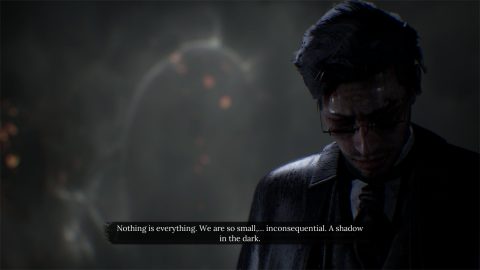
This re-imagining of The Awakened is fantastic. While the heavy assist reuse from Chapter One is obvious, limiting the game’s creative scope, what the team managed anyways is a gripping adventure that manages to top the original at many points, while being its own unique thing. Its observation and deduction based puzzles are rewarding to figure out fairly, and the story you’re rewarded with is a real highlight of the series. The fact it was made during such a chaotic time for Frogwares is extremely impressive, and hopefully they’ll be making more games for many years to come. Just as Holmes and Watson have each other, they have their fellow Ukrainians, and that may be enough to get through the tragedies they’ve had to endure. We hope to see them again, and their take on the iconic detective duo.
